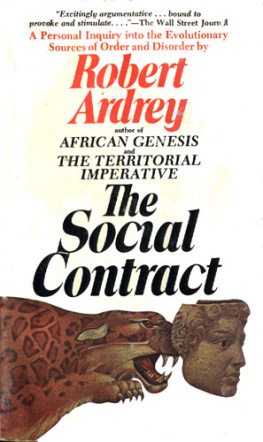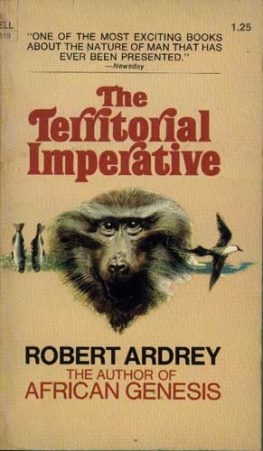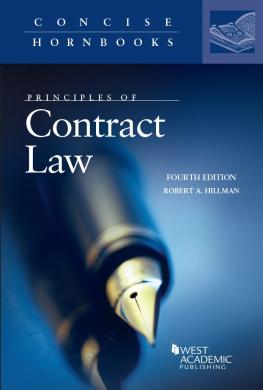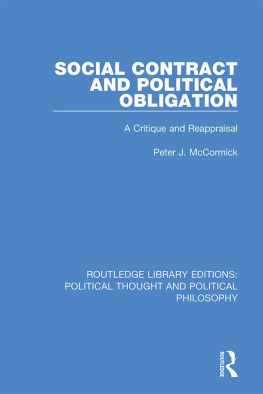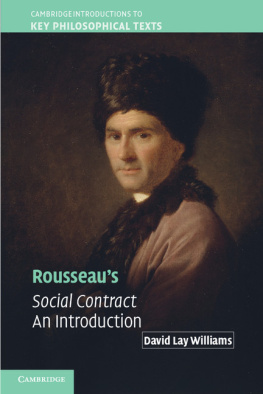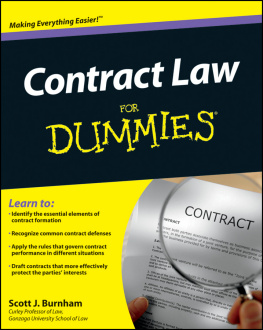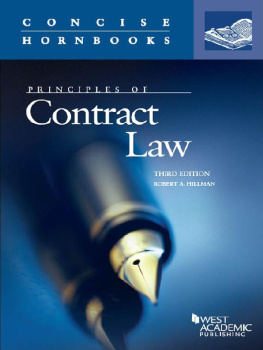Robert Ardrey - The Social Contract
Here you can read online Robert Ardrey - The Social Contract full text of the book (entire story) in english for free. Download pdf and epub, get meaning, cover and reviews about this ebook. year: 1970, genre: Science. Description of the work, (preface) as well as reviews are available. Best literature library LitArk.com created for fans of good reading and offers a wide selection of genres:
Romance novel
Science fiction
Adventure
Detective
Science
History
Home and family
Prose
Art
Politics
Computer
Non-fiction
Religion
Business
Children
Humor
Choose a favorite category and find really read worthwhile books. Enjoy immersion in the world of imagination, feel the emotions of the characters or learn something new for yourself, make an fascinating discovery.
- Book:The Social Contract
- Author:
- Genre:
- Year:1970
- Rating:3 / 5
- Favourites:Add to favourites
- Your mark:
- 60
- 1
- 2
- 3
- 4
- 5
The Social Contract: summary, description and annotation
We offer to read an annotation, description, summary or preface (depends on what the author of the book "The Social Contract" wrote himself). If you haven't found the necessary information about the book — write in the comments, we will try to find it.
The Social Contract — read online for free the complete book (whole text) full work
Below is the text of the book, divided by pages. System saving the place of the last page read, allows you to conveniently read the book "The Social Contract" online for free, without having to search again every time where you left off. Put a bookmark, and you can go to the page where you finished reading at any time.
Font size:
Interval:
Bookmark:
TO THE MEMORY OF
Jean-Jacques Rousseau
A society is a group of unequal beings organized to meet common needs.
In any sexually reproducing species, equality of individuals is a natural impossibility. Inequality must therefore be regarded as the first law of social materials, whether in human or other societies. Equality of opportunity must be regarded among vertebrate species as the second law. Insect societies may include genetically determined castes, but among backboned creatures this cannot be. Every vertebrate born, excepting only in a few rare species, is granted equal opportunity to display his genius or to make a fool out of himself.
While a society of equals -- whether baboons or jackdaws, lions or men -- is a natural impossibility, a just society is a realizable goal. Since the animal, unlike the human being, is seldom tempted by the pursuit of the impossible, his societies are seldom denied the realizable.
The just society, as I see it, is one in which sufficient order protects members, whatever their diverse endowments, and sufficient disorder provides every individual with full opportunity to develop his genetic endowment, whatever that may be. It is this balance of order and disorder, varying in rigor according to environmental hazard, that I think of as the social contract. And that it is a biological command will become evident, I believe, as we inquire among the species.
Violation of biological command has been the failure of social man. Vertebrates though we may be, we have ignored the law of equal opportunity since civilization's earliest hours. Sexually reproducing beings though we are, we pretend today that the law of inequality does not exist. And enlightened though we may be, while we pursue the unattainable we make impossible the realizable.
The propositions that I have put forward are not self-evident. Were they so, then there would be no need for me to write this book, or cause for anyone to read it. Neither do I put them forth as subjects for immediate acceptance or rejection, immediate digestion or expectation of instant nourishment. Indeed, like uncooked rice, they are quite indigestible. But in the course of this inquiry you and I will do a bit of cooking and see what comes of it. And so, to begin with, I suggest that we content ourselves with simply lighting our fire. Let us inspect the dream that has brought to the climactic years of the twentieth century the assurances and rewards of a madhouse.
The philosophy of the impossible has been the dominant motive in human affairs for the past two centuries. We have pursued the mastery of nature as if we ourselves were not a portion of that nature. We have boasted of our command over our physical environment while we ourselves have done our urgent best to destroy it. And we have pursued the image of human equality as citizens of earlier centuries pursued the Holy Grail.
The grand escapade of contemporary man can be denied neither excitement nor accomplishment. Out of our dream of equality we have lifted masses from subjection, moved larger masses into slavery. We have provided new heroes, new myths, new gallantries; new despots, new prisons, new atrocities. Substituting new gods for old, we have dedicated new altars, composed new anthems, arranged new rituals, pronounced new blessings, invoked new curses, erected new gallows for disbelievers." We have reduced sciences to cults, honest men to public liars. We have even reduced the eighteenth-century vision of human equality, glorious if false, to a more workable twentieth-century interpretation, mediocrity, inglorious if real.
Fundamental though the natural impossibility of equal beings must be to this inquiry, still it is not all. And if we are to glimpse a social contract leading neither to tyranny nor to chaos, then I prefer at first to consider it simply as a fraction of a larger delusion. The philosophy of the impossible rests on an article of faith, that man is sovereign. And the Greeks had a word for it: hubris.
To lift your head too high: it is to challenge the gods and risk a few thunderbolts assaulting your skull. The skeptical Greeks, never excessively infatuated with gods themselves, turned less to supernatural than to natural explanations of why the world is the way it is. Yet never, from the early times of the Ionian philosophers down through later excursions and controversies of the lively Greek mind, am I aware of presumptions that man could master nature. Even Protagoras' celebrated statement that man is the measure of all things seems to have been intended more in praise of the individual than in denial of forces larger than man.
As in Western thought various tides have swept this bay, assaulted that promontory, or, receding, have bared undistinguished flats, so we have turned now to gods, now to God, again to nature and its laws for satisfying answers. Our postures have varied from the compliance of slaves to the confidence of sailors. At our best we sought solutions of relevance to man; at our worst we avoided them. But never, till modern times, did men in any significant number presume a human sovereignty much larger than the human shadow. Never did we risk the Greek hubris, and a shattering knock on the head. "The conquest of outer space" for a most inquiring Greek would as a phrase have seemed as dangerous a possibility as it remains, in all fragility, a phrase of small reality today.
The big brag preceded the big bang as a human possibility. Any demonstration that the earth revolves about the sun, while offensive to authorities in charge, did not presume that we could reverse its course. Any proof of a natural law called gravity did not presuppose that man could make apples fall up; designers of supersonic planes, indeed, still take account of the apple. To the frontiersmen of science the discovery of natural laws meant no more than that we had explored certain forces governing the dispositions of man. But for many a hoi-polloi scientific settler who came after the frontier such discoveries meant something quite different. Man could master nature.
Eighteenth-century rationalism, while dispensing with the supernatural as a governing force, left a vacuum that not all the Encyclopedists could fill. And so an alliance between nineteenth-century optimism, looking to the perfectibility of man, and the early modern scientists (Darwin was not among them) rushed in. And the sovereign rule of materialism came about. Man, with the aid of science, could do anything. As materialist were the socialist philosophies as the capitalist. Uninhibited by laws natural or divine, we busied ourselves with the building of Paradise.
And no mean thing is this Paradise of the Impossible. Could animals dream, then our material heaven might well be the stuff that their dreams are made of. The small-brained hominid, dragging himself through the millions of years of our evolution, may well have longed for supermarkets. Yet he, I suspect, even facing the hostile African night, had a sense of certainty. And we have none.
A philosophy of the impossible is indeed no philosophy at all. And a paradise lacking a philosophy is one of uncertain future. Aimlessly we prowl our highways, teach or attend our classes, swallow our drugs or our television dinners, quarrel, fornicate, fear our children, sigh for the unfortunate and avoid their presence, envy the fortunate and court their approval, work to forget our meaningless lives, drink to forget our meaningless work, purchase Our pistols, deplore all wars, and praise the dignity of man.
It cannot be said that man, installed in his self-made heaven, has lost his dignity. The buffalo, small of brain, peering out of the African bush, commands dignity. Nor can it be said that if we have made mistakes we cannot learn. The amoeba can learn. Back in the 1920's an experiment was arranged in a darkened room whereby an intense beam of light barred the movement of amoebae. Among the brainless students there was one who never learned. On trial after trial it persisted in its efforts to cross the beam of light. But there was one who tried just five times and never moved in that direction again. Not only organisms lacking the least brain or nervous system could learn, but, significantly there was wide variation in their gifts.
Font size:
Interval:
Bookmark:
Similar books «The Social Contract»
Look at similar books to The Social Contract. We have selected literature similar in name and meaning in the hope of providing readers with more options to find new, interesting, not yet read works.
Discussion, reviews of the book The Social Contract and just readers' own opinions. Leave your comments, write what you think about the work, its meaning or the main characters. Specify what exactly you liked and what you didn't like, and why you think so.

